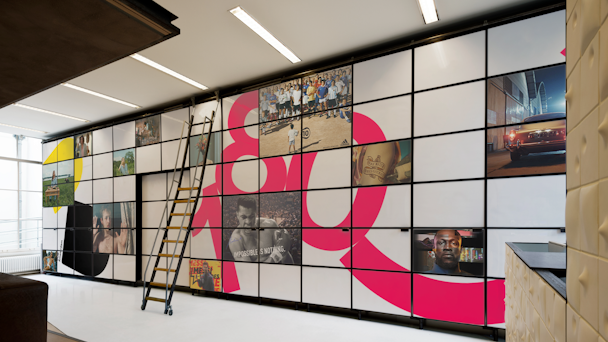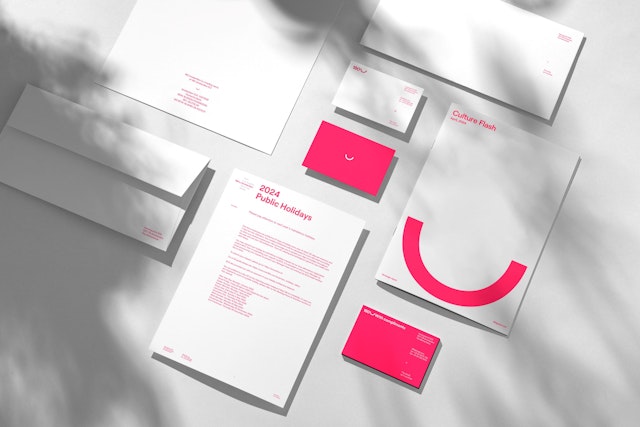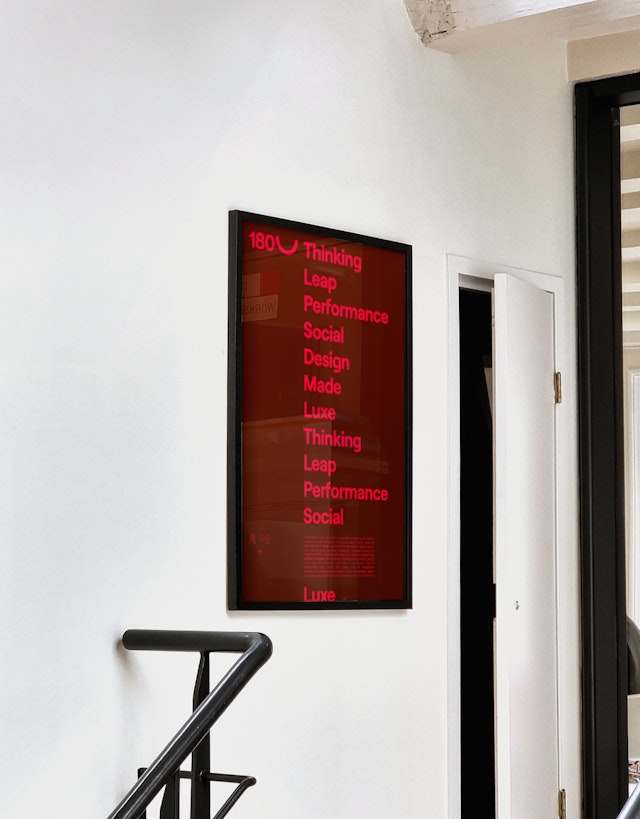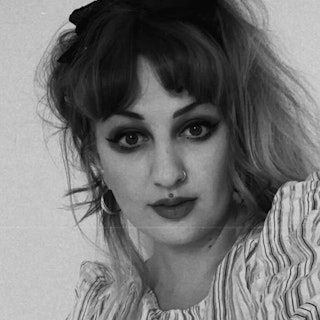As 180 turns 25, we look back at its best work and to its future and new identity
In an exclusive interview with The Drum, the Amsterdam agency’s co-founder, Chris Mendola, and global CEO, Sander Volten, delve into the ads that made its name and explain how it is commemorating a quarter of a century with a rebrand steeped in optimism.

180 Amsterdam has instroduced new branding / 180 Amsterdam
It has been 25 years since Chris Mendola, Alex Melvin and Guy Hayward founded 180 Amsterdam. Conjured up around a kitchen table, the agency’s name came from a Francis Ford Coppola quote that Melvin, who died in 2011, read in Fast Company: “To keep going in a crisis, do a 180-degree turn. Turn the situation halfway around. Don’t look for the secure solution. Don’t pull back from the passion. Turn it on full force.”
And turn it on full force it did. Over the years, the creative shop has produced some of advertising’s most iconic work. In the early years, it was the team’s work for Adidas on the newly iterated ‘Impossible Is Nothing’ campaign that truly brought the agency to the forefront. Today, clients including Pepsico, Omega and Dior turn to the collective to produce campaigns that will cut through.
Everything that has been achieved is underpinned by the concept the founding trio had back in the late 90s: bringing people from all nationalities together in a canal house in Amsterdam. At the time, the thought of having an “international” network was appealing, driven by the creatives’ desire to emphasize “human connection” as the common thread among diverse cultures, says Mendola.

“We didn’t have a client or anything and we got invited to pitch for a very small part of the Adidas business,” he recalls. “The three of us were all just sitting in my apartment, around the kitchen table, around my kids’ playpen and all this stuff, and we just wrote the pitch of our lifetime, frankly, at the time, and we won it.”
Mendola believes that they won that piece of work by not thinking conventionally, which was something of an obsession between them at the time. Candidly, he explains that there was no tolerance for anything else. It’s part of the reason they didn’t put their own surnames on the door; it was more important to have an ethos there.
The adman left the agency after 18 years, at the end of 2016, and says going back a couple of weeks ago for the 25th birthday party was “emotional.” Of course, the event was to celebrate the milestone, but it was also to unveil the agency’s new identity. Known for its red circular design, now the shop has adopted a half circle sitting aside the infamous ‘180’ numerals.
“We left, I think, a great creative and cultural foundation. That remains, but it’s also just turned into something better,” Mendola continues. “But the difference is that they’re engaging with people and consumers through all the different touchpoints way more than we did and they’re bringing real raw wild creativity to that.”
The co-founder and former chief creative officer admits that when you leave an agency, there is a daunting sense of not knowing what will become of it. When it is something that you create, it is highly personal. But he does say that, when he did leave, the agency “wasn’t in a great spot” and there were “a lot of challenges” in terms of staffing and business.
In June 2017, Sander Volten was brought in to take the helm. Over the seven years that followed, he has taken the shop to new “more contemporary” heights and “retooled the entire thing,” says Mendola.
Volten explains to The Drum that it all comes down to the agency’s foundations and that he feels strongly that it is his job to make sure everyone maintains them and lives up to them. “It’s a fierce belief in finding a fresh perspective and then pushing very hard against that. And then believing in our own creativity to actually solve those challenges. ‘The world under one roof’ is still a mantra we have here.”
The global CEO believes that the agency’s work for Adidas remains some of the best work it has ever produced and holds it as an example of the forward-thinking ethos – specifically the groundbreaking ‘Ali v Ali’ ad that saw old footage of Muhammad Ali layered with shots of his daughter, Laila Ali, edited together to look like the two were boxing each other.
“When we came in, Adidas was just coming back; at the time, Nike was the Goliath,” explains Mendola. “The company was about passion, from its receptionist to its CEO, so from there we developed ‘Impossible Is Nothing.’ It’s probably the most powerful platform because it’s about humanity. It’s more than just selling something; you’re selling a way of life.”
The $50m campaign had such a powerful impact on how people perceived Adidas that it was brought back in 2021, with the long-standing brand attitude still in use today. The sports brand left the agency over a decade ago, but Volten is pleased to say that it is “back in the building,” and the founding client has reconnected.
It’s something that the exec worked hard at. “We’re not its main agency; we’re not doing all that big work yet. But we have a foot in the door and we’re producing work and it’s exciting. We’re ambitious and we want to show that we can still be that partner that can drive great work.”
For Volten, the first standout project during his tenure is the agency’s work for delivery service DHL. 180 Amsterdam has worked on all its partnerships, including collaborations with Coldplay, Manchester United and even the James Bond franchise. After the DHL work, he has a soft spot for the various campaigns it has done for Sony PlayStation, which have been activated in around 87 markets worldwide for the brand.
“The work we’re most proud of is where we really pushed against new technology and how we can use that in a new form,” he says. “So, we did the first real big deepfake work, probably about two or three years ago, with ‘Messi’s Messages,’ where we had Messi talk to you in his own voice, in your own language, which was very spooky.”
Today, the agency uses the phrase ‘The world as it could be’ to describe its approach to creative work. It’s an ideal of where its clients could be and where it could take them, but Volten says the agency has no time for “fluffy” words; it’s all about real actions, which it highlights with its new identity.

In jest, Volten says that agency rebrands are one of those projects that people in the industry usually get excited about but don’t really want to participate in because they’re actually a nightmare. He adds that after a slew of new hires in the C-suite, however, it felt like time to shake things up a little.
“We’ve delivered the first 25 years and now we’re going into the next 25 years, so we thought, ‘Wouldn’t it also be nice to kind of pick out some new clothes and dress up for that?’”
It’s all about freshening it up for the future. Volten says that the new look was presented to the “old and new guard” at the birthday party and that everyone is excited about it – including, of course, Mendola.
The co-founder shares how, to him, it conveys 180’s sense of positivity and evolution. “180 brings optimism and I know that, by spending time in the agency, there’s a real red thread among the people in the agency and the work. To bring that to clients and embed optimism into the brand spirit is just awesome; it’s wonderful. So, I think that spirit is there in the new identity. It’s the evolution of how we see the world and seeing the world as it could be, as it should be.”
